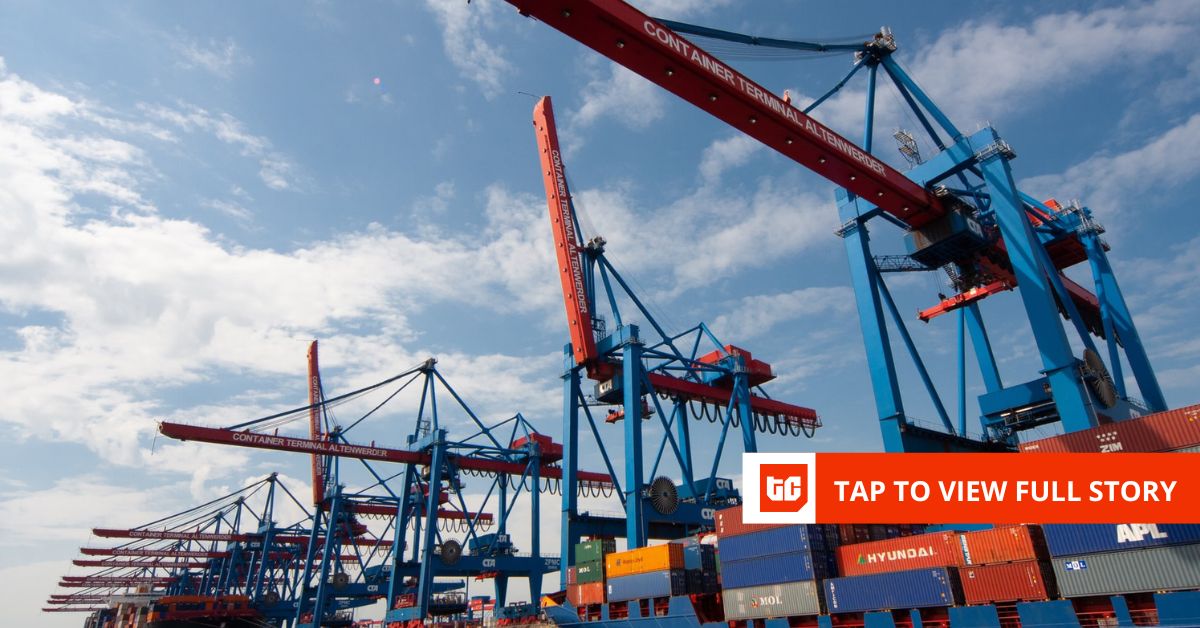Cross-border trade directly impacts Nigeria’s economic development, especially with the growing role of technology. However, this potential remains undercut by persistent and complex supply chain challenges, many of which are not often discussed. These challenges limit Nigeria’s ability to adopt emerging technologies, like agentic artificial intelligence, for efficient global marketplace operations.
This piece explores three major hurdles obstructing Nigeria’s non-oil export ambitions: a hyper-focus on consumer goods, underutilised trade blocs, and inadequate infrastructure.
Hyper-focus on consumer goods for export
There is a gross imbalance between the export of consumer goods and value-added goods. In economics, consumer goods are finished products for direct consumption (e.g., biscuits, soap), while value-added goods are raw materials transformed to increase economic worth (e.g., Shea Oil or Cocoa Powder). Capital goods are the equipment used to produce both.
Countries like China have thriving exports due to their heavy investment in capital goods, enabling the mass production of high-quality exports. In contrast, Nigeria struggles to match these volumes due to the lack of processing capacity. Despite opportunities like the UK’s recent decision to allow over 3,000 Nigerian products duty-free access, the impact remains minimal if dominated by processed consumer goods.
Thousands of SMEs in Nigeria attempt to export consumer goods but fail due to stringent compliance requirements abroad. For instance, steam sterilisation is required to export certain goods to Europe, with one piece of sterilisation equipment costing around ₦90 million, well beyond the reach of many SMEs.
This overemphasis on consumer goods, without the needed machinery and infrastructure to meet international standards, limits the economic impact and scalability of exports.
Underutilised and unrealised trade blocs
Trade blocs are agreements between countries to ease cross-border trade. Nigeria is a member of several promising blocs, yet these are either underused or practically ineffective.
Take the African Growth and Opportunity Act (AGOA), a U.S. trade initiative offering duty-free access to the American market for eligible African countries. It includes sectors like textiles, agriculture, auto parts, handmade goods, and beauty products. Despite its existence since 2000-2025, Nigeria has barely leveraged AGOA in non-oil exports.
Similarly, the African Continental Free Trade Area (AfCFTA), a landmark agreement among 54 African countries, aims to boost intra-African trade by removing 90% of tariffs, streamlining borders, and even introducing a single currency. However, its practical implementation lags far behind the political will.
A typical example: shipping goods from Lagos to Kigali, Rwanda (a landlocked country), involves multi-modal transport, often routing through Kenya or Tanzania. Ironically, due to poor intra-African shipping routes, a container might transit through Europe or the Middle East before reaching East Africa, increasing cost, delivery time, and risks. This undermines the very essence of “free trade.”
Hence, despite well-intentioned participation, Nigeria’s engagement with these trade blocs remains largely unrealised and limits its global economic leverage.
Inadequate Infrastructure
Global supply chains rely on critical infrastructure: sourcing, inventory management, payments, logistics, and warehousing, mostly powered by technology. In Nigeria, persistent issues with cross-border payments and warehousing continue to slow growth.
Payment is particularly crucial for marketplaces dealing with hundreds of vendors. Initially, platforms like Mercury enabled Nigerian businesses to open U.S. accounts linked with global gateways like Stripe. However, when Mercury restricted access to Nigerian businesses, a gap emerged. Startups like Raenest have stepped in, recently offering payout services from U.S. accounts directly to Nigerian vendors. If sustainable, this could resolve a major bottleneck.
Warehousing is another sticking point. International marketplaces operate subscription-based models (like Amazon), where vendors stock goods in destination countries for easy fulfillment. Nigerian vendors, however, are reluctant to pay recurring fees in foreign currency without guaranteed sales, while marketplaces still incur storage costs.
Therefore, platforms must devise innovative models to address the warehousing issue or risk excluding many SMEs.
What needs to change
Currently, Nigeria ranks outside the top 50 exporters to the United States, the world’s largest consumer market. In 2024, Nigeria exported only around $5 billion worth of non-oil exports, compared to Mexico and China, which recorded over $500 billion and $400 billion, respectively. While Mexico benefits from NAFTA and China from government-backed industrialisation and machinery access, Nigeria’s challenges keep its global trade potential largely untapped.
To reposition Nigeria as a competitive global exporter:
- SMEs must form consortia to pool resources and meet the volume requirements of international buyers.
- Production hubs with the right machinery must be developed with these consortia to meet regulatory standards.
- Value-added goods should be prioritised over raw or low-value consumer goods, as they face fewer trade barriers and are more adaptable to market needs.
If Nigeria can tackle these issues systematically, it could create a ripple effect of innovation and industrialisation, especially technology-driven solutions that could transform its international trade.
______
Omowumi Omidiji is the founder of SOUQ OS, a B2B cross-border supply chain management platform leveraging technology to build trust and streamline Diaspora- Africa trade. With her experience in Law, Tech, and Export, she is a member of She Trades by ITC and eTrade for Women by UNCTAD.
Mark your calendars! Moonshot by is back in Lagos on October 15–16! Join Africa’s top founders, creatives & tech leaders for 2 days of keynotes, mixers & future-forward ideas. Early bird tickets now 20% off—don’t snooze! moonshot..com











